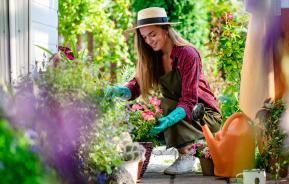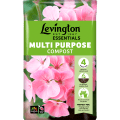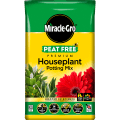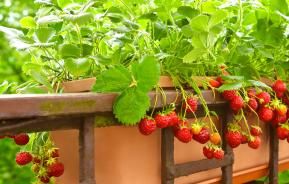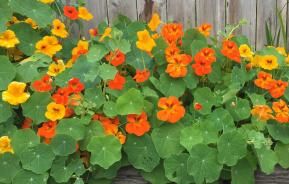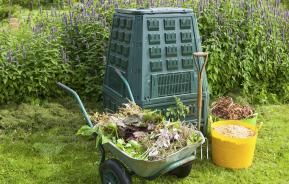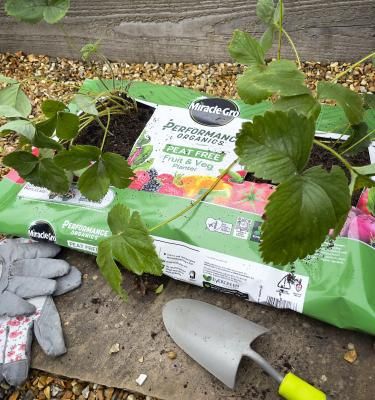
Getting kids involved in the garden
The magic of gardening
Part of the magic of gardening is that it doesn’t matter your age, because you can still get stuck in with the wonders of nature. Getting kids involved in gardening from an early age instils them with new skills, curiosity and maybe even a lifelong hobby.
Keeping the little ones engaged and occupied through holidays or trying to keep screen time to a minimum can seem difficult at times, but setting up garden related projects will keep them coming outdoors for more, especially when they get to eat their harvests as a reward.
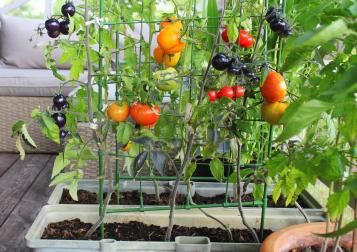
Growbags galore
One of the things that I’ve always found to be a success is to give kids their own space. Allowing them their own space to be responsible for will encourage them to keep up with caring and nurturing for the plants. It doesn’t have to be a large space, either a container or a Performance Organics Peat Free Fruit & Veg Planter to plant up. As well as being pet and child friendly, the planter provides the crops with essential nutrients that leads to twice as much produce organically, so there will be plenty for the kids to harvest.
Get them started by growing peas which are a sure-fire winner. ‘Douce Provence’ is a compact variety that can be sown between February and July and October to November for crops at different times of the year. It’s a reliable crop, and is an easy grower, making it a fantastic starting point. Ensure they are watered well when flowering and when pods appear, harvest from the bottom of the plant to encourage more pods. Let the kids eat the peas straight after harvesting to make the most of their sweet, sugary taste. Once harvested, the sugar begins to turn to starch which alters the taste of these sweet peas.
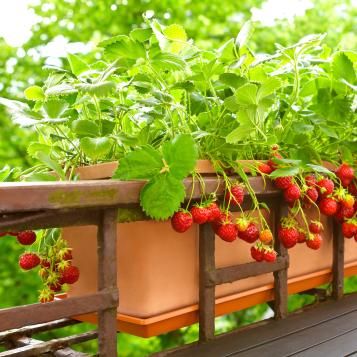
Wild strawberries have grown in Britain since the ice age, but the first garden strawberry was grown in France in the late 18th Century. They are a valuable crop to have in the garden, and the juicy red fruits will be popular with the kids.
At this time of year, summer-fruiting cultivars can be planted so there is enough time for the plants to establish and settle in for the next growing season. Position them in a place with fertile, well-drained soil, sun, and shelter. With this preparation, you’ll have fruits at your fingertips from June. Water the plants as necessary to keep the compost moist, then in spring, feed the plants every week or two with Performance Organics Fruit & Veg Concentrated Liquid Plant Food.
Success with salads
Whether you’re opting to grow micro greens on the windowsill or want a patch full of summer salad leaves, these are great to grow with kids. One of the great things about many salad leaves is that they can be successionally sown through the season from March to September.
They need a spot with plenty of sun and well-drained soil to thrive, and can be grown in the ground, containers, or grow bags. Among the successful salad leaves to grow are lettuce, rocket, mustard, chicory, and spinach. As cut-and-come-again crops, regularly harvesting a few leaves from plants when they reach around 10cm tall will encourage more to grow so you’re making the most of the plants. Kids are sure to be amazed watching this happen.
Simply sprinkle the seeds onto a patch of bare Performance Organics Peat Free Fruit & Veg Compost, then cover the seeds with 1cm, and water lightly. Thin out some of the seedlings as they appear so there is enough room for the others to grow strong.
Windowsill wonders
Even without an outdoor space, kids can engage with nature and be amazed by the wonder of plants on the kitchen windowsill. Cress is always a classic to grow, and it’s because it’s so easy.
Make it a fun project by carefully knocking the top off some eggs, keeping as much of the shell intact as possible. Give them a quick wash and place some cotton wool in the bottom of the shell and a little bit of water. Sprinkle some seeds and position them on a warm and bright windowsill and leave to germinate. Draw some faces on the eggs and the fun hair will grow and then can be snipped off and used in salads and sandwiches. It really is as easy as that.
There’s no better way to engage children that getting them out in the garden for a bit of fresh air and connection with nature. Teaching them about the importance of plants and the skills needed to grow-your-own food can give them important knowledge for life from an early age.

